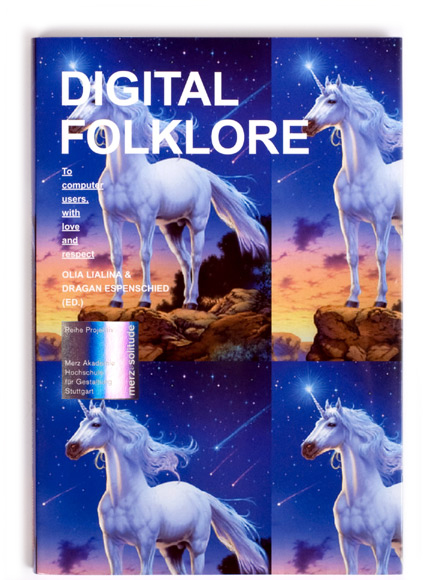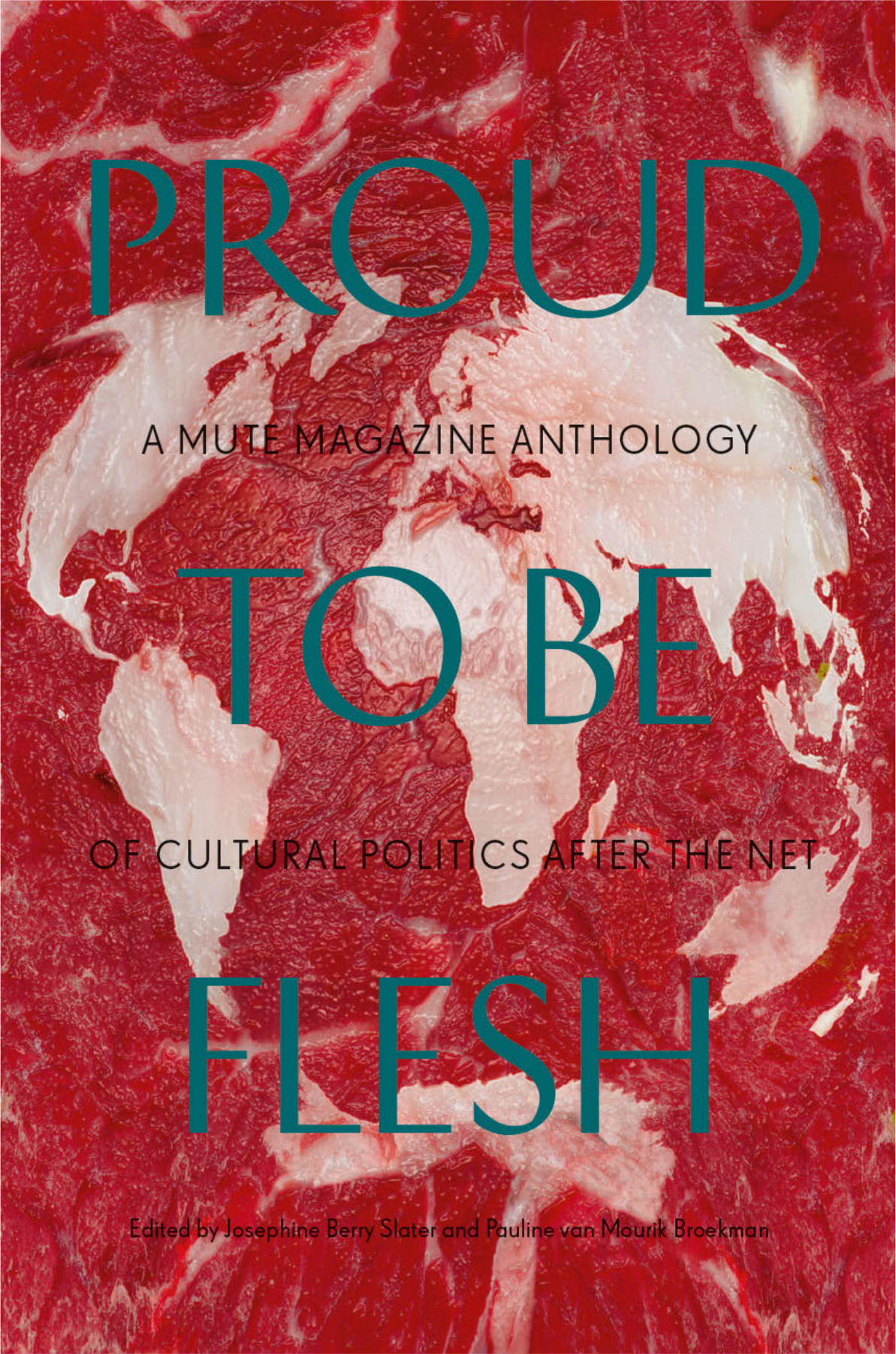Olia Lialina, Dragan Espenschied (eds.): Digital Folklore: To Computer Users, with Love and Respect (2009)
Filed under book | Tags: · amateur culture, folklore, internet, internet culture, media art, memes, net culture, network culture, web

“Technical innovations shape only a small part of computer and network culture. It doesn’t matter much who invented the microprocessor, the mouse, TCP/IP or the World Wide Web and what ideas were behind these inventions. What matters is who uses them. Only when users start to express themselves with these technical innovations do they truly become relevant to culture at large.
Users’ endeavors, like glittering star backgrounds, photos of cute kittens and rainbow gradients, are mostly derided as kitsch or in the most extreme cases, postulated as the end of culture itself. In fact this evolving vernacular, created by users for users, is the most important, beautiful and misunderstood language of new media.
As the first book of its kind, this reader contains essays and projects investigating many different facets of Digital Folklore: online amateur culture, DIY electronics, dirtstyle, typo-nihilism, memes, teapots, penis enlargement, …” (from the back cover)
Contributors: Cory Arcangel, Julia Böger, Manuel Buerger, Helene Dams, Dragan Espenschied, Jörg Frohnmayer, Mark Grimm, Christopher Heller, Yunchul Kim, Dennis Knopf, Stefan Krappitz, Florian Kröner, Tobias Leingruber, Olia Lialina, Leo Merz, Bernadette Neuroth, o+ro, johannes p osterhoff, Isabel Pettinato, Michael Ruß, Alexander Schlegel, Bert Schutzbach, Siegfried Zielinski.
Publisher Merz & Solitude (Merz Akademie & Akademie Schloss Solitude), Stuttgart, 2009
Reihe Projektiv series
Designer Manuel Buerger
ISBN 9783937982250, 3937982256
287 pages
Reviews: Pau Waelder (Furtherfield, 2010), Kevin McGarry (Rhizome, 2010), Regine Debatty (We Make Money Not Art, 2010), Alessandro Ludovico (Neural, 2010), Richard Schwarz (The Gap, 2010, DE), Marie Lechner (Libération, 2010, FR), Stefania Bercu (Masters of Media, 2010).
Book website
Publisher
WorldCat
PDF (27 MB)
Comment (0)Proud to be Flesh: A Mute Magazine Anthology of Cultural Politics after the Net (2009)
Filed under book | Tags: · art criticism, art history, internet, london, media, media art, net culture, networks, politics, technology, theory

“In late 1994, back in the days of dial-up modems and Netscape Navigator 1.0, Mute magazine announced its timely arrival. Dedicated to an analysis of culture and politics ‘after the net’, Mute has consistently challenged the grandiose claims of the communications revolution, debunking its utopian rhetoric and offering more critical perspectives.
Fifteen years on, this anthology selects representative articles from the magazine’s hugely diverse content to reprise some of its recurring themes. This expansive collection charts the perilous journey from Web 1.0 to 2.0, contesting the democratisation this transition implied and laying bare our incorporeal expectations; it exposes the ways in which the logic of technology intersects with that of art and music and, in turn and inevitably, with the logic of business; it heralds the rise of neoliberalism and condemns the human cost; it amplifies the murmurs of dissent and revels in the first signs of collapse. The result situates key – but often little understood – concepts associated with the digital (e.g. the knowledge commons, immaterial labour and open source) in their proper context, producing an impressive overview of contemporary, networked culture in its broadest sense.
Proud to be Flesh features a mix of essays, interviews, satirical fiction, email polemics and reportage from an array of international contributors working in art, philosophy, technology, politics, cultural theory, radical geography and more.”
Edited by Josephine Berry Slater and Pauline van Mourik Broekman, with Michael Corris, Anthony Iles, Benedict Seymour and Simon Worthington
Publisher Mute Publishing, London, with Autonomedia, New York, 2009
ISBN 9781906496289, 1906496285
572+48 pages
Reviews: Nicholas Thoburn (New Formations), Charlotte Frost (Rhizome), Julian Stallabrass (New Left Review).
PDF, PDF (15 MB, updated on 2019-6-12)
Comment (0)monochrom, 11-23 (2000-2004) [German]
Filed under magazine | Tags: · art, conspiracy, copyleft, copyright, media, media art, media culture, net culture, philosophy, politics, science fiction, software, subversion, surveillance, tactical media, technology


The mouthpiece of an international art-technology-philosophy collective founded in 1993, with its headquarters at Museumsquartier in Vienna.
“Das Fanzine monochrom ist ein im Telefonbuch-Format erscheinendes Zeitschriftenobjekt, das von der gleichnamigen Künstler_innengruppe aus Wien, Graz und Bamberg/Deutschland herausgegeben wird. monochrom ist ein Potpourri der digitalen und analogen Subversion, ein unnostalgisches Amalgam aus 125 Jahren abendländischer Gegenkultur, die Godzilla-Variante der gutbügerlichen Coffeetablebuch-Idee.”
Editor-in-chief: Johannes Grenzfurthner
Publisher monochrom, Vienna
ISSN 1024-6738
Publisher, (2)
monochrom on Wikipedia
PDF (No. 11-14: Ontologisches Sanierungsportfolio, 2000, 260 pp)
PDF (No. 15-23: Zweite Ordnung muss sein, 2004, 436 pp)

